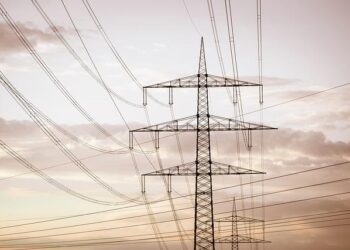Moldova is taking significant strides toward a cleaner and more sustainable energy future with plans to rapidly expand the use of heat pumps across the country. In its latest analysis, the International Energy Agency (IEA) outlines a comprehensive roadmap to accelerate the deployment of this efficient heating technology, which promises to reduce greenhouse gas emissions and decrease reliance on imported fossil fuels. As Moldova faces rising energy costs and growing environmental concerns, the IEA’s detailed assessment offers crucial insights into policy measures, market reforms, and infrastructure investments needed to ramp up heat pump adoption nationwide. This article delves into the key findings and recommendations from the IEA’s report, spotlighting Moldova’s path to a greener heating system and enhanced energy security.
Ramping Up Heat Pumps in Moldova Unlocking Energy Efficiency and Climate Benefits
Accelerating the deployment of heat pumps in Moldova presents a transformative opportunity to enhance energy efficiency and reduce greenhouse gas emissions. As the country continues to grapple with energy security challenges and rising heating costs, heat pumps offer a sustainable alternative by leveraging ambient energy to provide cost-effective heating and cooling solutions. Crucially, the integration of this technology can reshape Moldova’s energy landscape by decreasing dependence on fossil fuels and amplifying the share of renewables in the heat sector. The pathway forward requires coordinated policy frameworks, increased investment, and targeted incentives to stimulate adoption among residential, commercial, and public buildings.
Key enablers for scaling up heat pumps include:
- Development of supportive regulatory standards and quality assurance mechanisms
- Capacity building for installation and maintenance professionals
- Financial support schemes such as subsidies or low-interest loans
- Raising consumer awareness through education and outreach campaigns
| Metric | Current Status | Target by 2030 |
|---|---|---|
| Heat Pump Market Share (%) | 2% | 20% |
| CO2 Emissions Reduction (kt/year) | 5 | 50 |
| Households Using Heat Pumps | 10,000 | 100,000 |
Analyzing Infrastructure Challenges and Market Readiness in Moldova
Moldova’s infrastructure presents a complex landscape for the widespread adoption of heat pumps, marked by outdated energy grids and uneven electrification across rural and urban areas. Key barriers include insufficient grid capacity to support the additional electrical load from heat pump installations and limited availability of skilled technicians familiar with the technology. Public buildings and residential zones in remote regions face logistical challenges in terms of reliable electricity supply, which directly impacts the operational efficiency and appeal of heat pumps as a sustainable heating solution.
On the market readiness front, awareness and financial incentives remain critical factors influencing adoption rates. Despite growing interest fueled by government ambitions towards decarbonization, the market is still in its infancy, with a limited number of suppliers and service providers. The following table outlines current challenges alongside potential interventions to accelerate market growth:
| Challenge | Impact | Proposed Solutions |
|---|---|---|
| Grid Capacity Constraints | Restricts heat pump deployment | Grid modernization & smart metering |
| Low Consumer Awareness | Delays adoption decisions | Public education campaigns |
| Limited Installer Network | High service costs, limited access | Training programs & certification |
| Financial Barriers | Low upfront affordability | Subsidies & low-interest loans |
Key Policy Recommendations from the International Energy Agency for Accelerated Deployment
The International Energy Agency emphasizes the urgent need for comprehensive policy frameworks to accelerate heat pump adoption throughout Moldova. Central to this approach is the implementation of targeted financial incentives that reduce upfront costs for consumers and businesses. Subsidies, tax credits, and low-interest loans are recommended to make heat pumps more accessible and appealing, particularly for residential households. In parallel, robust regulations mandating higher energy efficiency standards for new constructions and renovations will ensure that heat pump technology becomes integral to Moldova’s building practices.
Policy recommendations also underscore the importance of:
- Strengthening the local supply chain by supporting manufacturers and installers through training programs and certification schemes.
- Launching public awareness campaigns to inform citizens about the benefits of heat pumps, focusing on both energy savings and environmental impact.
- Developing a long-term roadmap aligned with Moldova’s climate goals, integrating renewable energy sources to power heat pumps sustainably.
| Priority Area | Recommended Action | Expected Impact |
|---|---|---|
| Financial Support | Introduce subsidies & low-interest loans | Increase heat pump installations by 30% within 5 years |
| Regulatory Measures | Set mandatory efficiency standards | Reduce energy consumption in buildings by 20% |
| Capacity Building | Training & certification for installers | Ensure quality and reliability of installations |
| Public Awareness | Information campaigns on benefits | Boost consumer confidence and demand |
In Conclusion
As Moldova seeks to modernize its energy landscape and reduce reliance on fossil fuels, the International Energy Agency’s comprehensive roadmap for ramping up heat pumps offers a timely and strategic blueprint. By embracing this technology, the country can enhance energy efficiency, cut emissions, and improve energy security amid growing regional challenges. The IEA’s analysis underscores the critical steps Moldova must take-from policy reforms to infrastructure investments-to unlock the full potential of heat pumps. As implementation begins, all eyes will be on Moldova’s ability to translate these recommendations into action, setting a possible example for other nations navigating the clean energy transition.
















